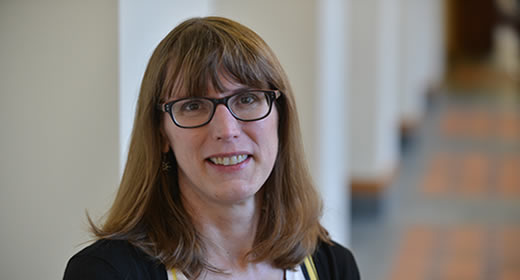
According to “How Poor Single Moms Survive,” an article by Alana Semuels for The Atlantic, the number of single-parent households in the US has soared since 1960, just as the amount of government assistance available to these largely female-headed households has declined.
The article highlights new research from Ford School Assistant Professor Kristin Seefeldt and Heather Sandstrom of the Urban Institute, which details the strategies used by low-income parents to stay afloat post-welfare reform (the 1996 policy intended to encourage Americans to exit the welfare system and join the labor force).
“The mantra in Michigan was a job, a better job, a career: Through work you would experience upward mobility. There was never any evidence that was the case,” said Seefeldt.
Seefeldt and Sandstrom’s research found that in 2008, about 20 percent of all low-income single mothers were not in the welfare system or employed, getting by on a median annual income of $535. These mothers relied on social networks and connections to stay afloat, rather than attempting to navigate the barriers to accessing government assistance.
“It was really piecing together help from family and friends, letting bills stay unpaid, and in some of the more dire situations, they doubled up with friends and other family members because housing is such a big cost,” said Seefeldt in the piece.
According to the authors, single mothers stayed at home due to limited childcare options and job opportunities, and sometimes as a result of pressure from a partner who didn't want them to work outside the home. Even mothers who did find work were often on the edge of losing it.
“One broken car, one sick kid, one court date [could] upend the fragile system they’d created for themselves,” they said.
Kristin Seefeldt is an assistant professor of public policy at the Gerald R. Ford School of Public Policy and an assistant professor of social work at the University of Michigan’s School of Social Work. She is the author of Working After Welfare (W.E. Upjohn Institute Press) which discusses employment advancement and work-family balance challenges as experienced by former welfare recipients.
--Story by Afton Branche (MPP '17)
